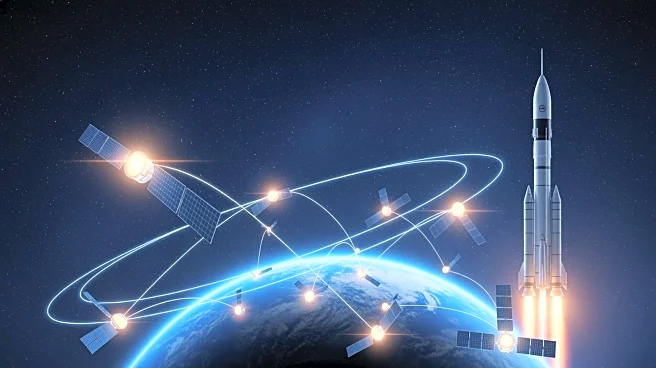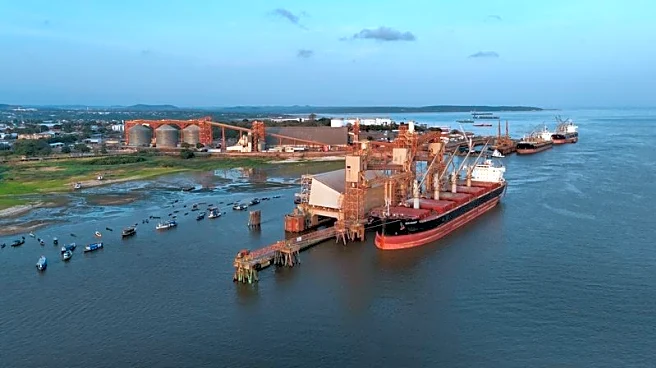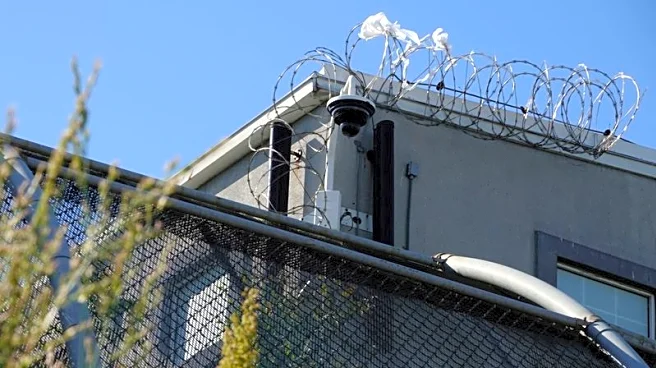What's Happening?
SpaceX is set to achieve two significant milestones with the launch of its Falcon 9 rocket today. The launch, scheduled from Florida's Cape Canaveral Space Force Station, will deploy 28 Starlink broadband satellites, marking the 10,000th Starlink satellite sent
to orbit. This mission also represents the 31st flight for the Falcon 9's first stage booster, setting a new record for rocket reuse. SpaceX has been rapidly expanding its Starlink megaconstellation since its first launch in 2018, with the service now available to millions globally. The company has permission to launch up to 12,000 satellites, with potential expansion to 30,000.
Why It's Important?
The successful deployment of 10,000 Starlink satellites underscores SpaceX's leadership in satellite internet services, providing global broadband access. This achievement highlights the company's innovative approach to reducing spaceflight costs through reusable rockets, which could revolutionize the industry. The expansion of the Starlink network is crucial for remote and underserved areas, offering high-speed internet access and bridging the digital divide. Additionally, the continued success of SpaceX's reusable rocket technology could significantly lower the cost of future space missions, benefiting various sectors including telecommunications, research, and defense.
What's Next?
Following this launch, SpaceX plans to continue expanding its Starlink constellation, with more launches scheduled. The company is also developing its next-generation Starship rocket, which aims to further reduce costs and increase payload capacity. As SpaceX progresses, it may face regulatory challenges and competition from other satellite internet providers. However, its advancements in rocket reuse and satellite deployment position it as a key player in the future of space exploration and global connectivity.

















